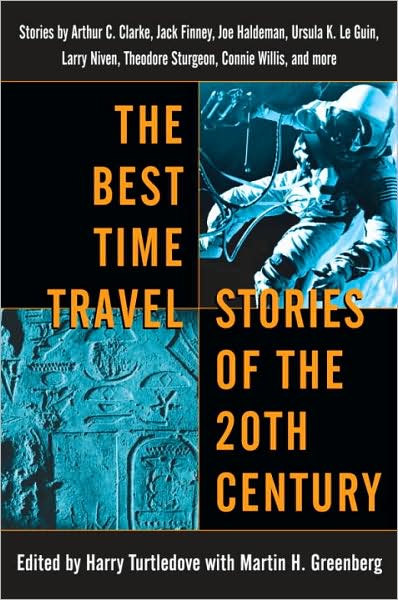I want to consider a selection of short stories on the theme of useless time travel. In SF, often a lot of the best work has always been at short lengths. I’m going to talk about Poul Anderson’s “The Man Who Came Early” (1956), Alfred Bester’s “The Men Who Murdered Mohammed” (1958), R..A. Lafferty “Thus We Frustrate Charlemagne” (1967), Robert Silverberg’s “House of Bones” (1988) and Robert Reed’s “Veritas” (2002).
All five of these are excellent stories, all of them are thought provoking, and they’re all in dialogue with the novels I’ve been discussing. Most of them have been much collected and anthologized and are easy to get hold of, but the only copy of “Veritas” I have is in an old Asimov’s.
What I mean by useless time travel is time travel that doesn’t change anything—either where somebody goes back in time and stays there without making any difference, or time travel that changes itself out of existence, or time travel that is in some other way futile. I don’t just mean changing time. In books like Butler’s Kindred where the protagonist saves the lives of her ancestors but doesn’t otherwise affect the world, time travel still serves a useful purpose.
“The Man Who Came Early” is notable from being from the point of view of the locals who meet the stranded time traveler and are not impressed by him. Anderson is taking the Lest Darkness Fall model and saying no to it, showing a man from the future failing to make any headway among the Norsemen. His protagonist is even less successful than Tarr and Turtledove’s Nicole who at least makes it home.
In “The Men Who Murdered Mohammed” it is the nature of time itself that confounds time travelers—history is personal, in Bester’s memorable metaphor it’s like a strand of spaghetti for everyone, and when you change history you become like the spaghetti sauce, detached from the world. So you can go back in time and change it, and it doesn’t change it for anyone except yourself. Very clever, very funny, and quite chilling when you think about it. Typical Bester.
“Thus We Frustrate Charlemagne” is typical Lafferty in that it’s very weird, very clever, and impossible to forget. It’s the traditional three wishes fairytale told with time travel and making changes, with the twist that after the changes have been made the time travelers are unaware of any changes, though the reader can see them plainly. The time travel isn’t useless, but it appears to be, and ultimately everything returns to the way it was.
“House of Bones” is about a time traveler stranded among cave men and Neanderthals, learning a lesson about what it means to be human. He doesn’t change history and he doesn’t go home, and so it’s all useless in that sense, but it’s a surprisingly heartening story nevertheless, and I’d list it among Silverberg’s very best. Silverberg has written plenty of other things about time travel, but it’s usually useful.
“Veritas” is set in a world that has easy time travel to “moment universes” as in Corrupting Dr Nice. Once you’ve gone into a universe, you can’t get back to your starting point. The story concerns some young men who go back to conquer Rome, and end up with a mission to spread Romanitas over as many worlds as possible. It’s futile, or perhaps quixotic, because there are an infinite number of worlds, and they can never revisit any of them to see what happens.
Jo Walton is a science fiction and fantasy writer. She’s published eight novels, most recently Half a Crown and Lifelode, and two poetry collections. She reads a lot, and blogs about it here regularly. She comes from Wales but lives in Montreal where the food and books are more varied.










